7 key takeaways from AG Barr’s testimony on the Mueller report
The attorney general met with lawmakers for five hours on Wednesday.
A defiant Attorney General William Barr arrived on Capitol Hill Wednesday amid relentless criticism from Democrats over his rollout of special counsel Robert Mueller's findings.
Democrats' concerns were buttressed before Wednesday's hearing when news outlets, including ABC News, reported that Mueller had expressed frustration over the attorney general's failure to "fully capture the context, nature, and substance" of his conclusions in a letter Barr sent Congress shortly after receiving the special counsel's report.
Members of the Senate Judiciary Committee on Wednesday had their first crack at questioning Barr since the report was made public. Here are seven key takeaways:
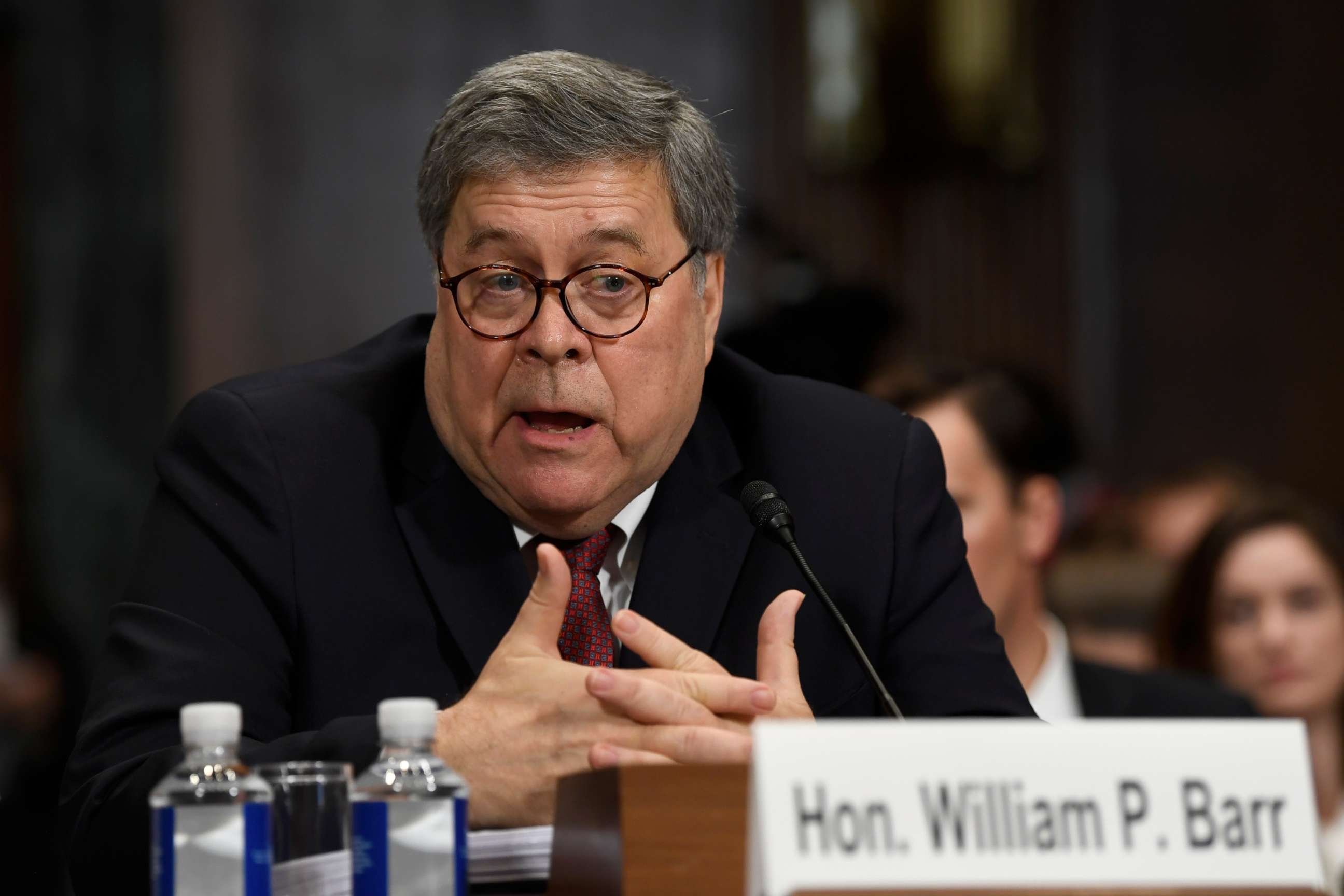
Despite questions about his impartiality from Democrats, Barr maintained a posture defending President Donald Trump
The attorney general on Wednesday consistently appeared to defend Trump, repeatedly claiming that he and his campaign had been "falsely accused."
"How did we get to the point here where the evidence is now that the president was falsely accused of colluding with the Russians, and accused of being treasonous, and accused of being a Russian agent?" Barr asked. "The evidence is now that was without a basis, and two years of this administration have been dominated by the allegations that have now been proven false."
"To listen to some of the rhetoric," Barr continued, "you would think the Mueller report had found the opposite."
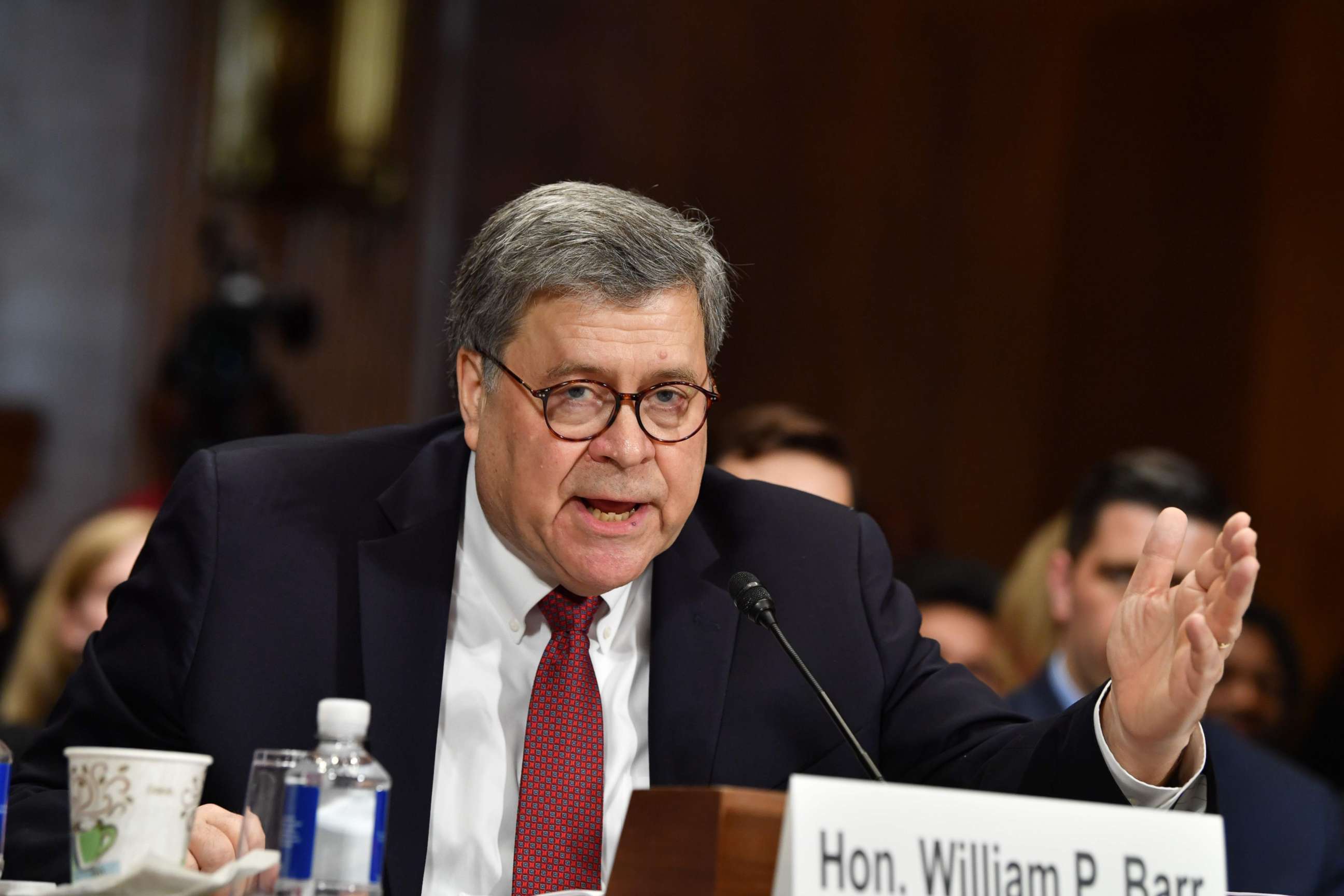
The word "collusion," itself, does not appear in the federal code. Mueller in his report weighed in on the use of the non-legal term saying "this Office evaluated potentially criminal conduct that involved the collective action of multiple individuals not under the rubric of 'collusion,' but through the lens of conspiracy law."
The attorney general justified examples of what the report described as potential instances of obstruction against Trump investigated by Mueller's office, including his use of the word "flipping."
"By 'flipping,' he meant succumbing to pressure on unrelated cases to lie and compose in order to get lenient treatment on the cases," Barr said. "Discouraging 'flipping' in that sense is not obstruction."
On obstruction of justice, the special counsel's office made no conclusion on the matter of possible obstruction of justice by Trump, but Barr noted, that the attorney general himself determined that the evidence against Trump did not amount to a crime.
Mueller didn't intend report as roadmap for Congress, according to Barr: 'That would be very inappropriate'
As Democrats grapple over the implications and effectiveness of pursuing impeachment proceedings against Trump, the attorney general on Wednesday insisted the special counsel did not intend for his report to be used as a roadmap for Congress to consider possible obstruction of justice.
"[Mueller] has not said that he conducted the investigation in order to turn it over to Congress," Barr told Sen. Patrick Leahy, D-Vt. "That would be very inappropriate, that is not what the Justice Department does."
Leahy cited a passage in Mueller's report in which he suggested that Congress, as an equal branch of government, has the authority to take the information uprooted by Mueller and either craft laws to prevent future presidents from conducting behavior described in the report, or, as "a drastic and rarely invoked remedy," pursue impeachment.
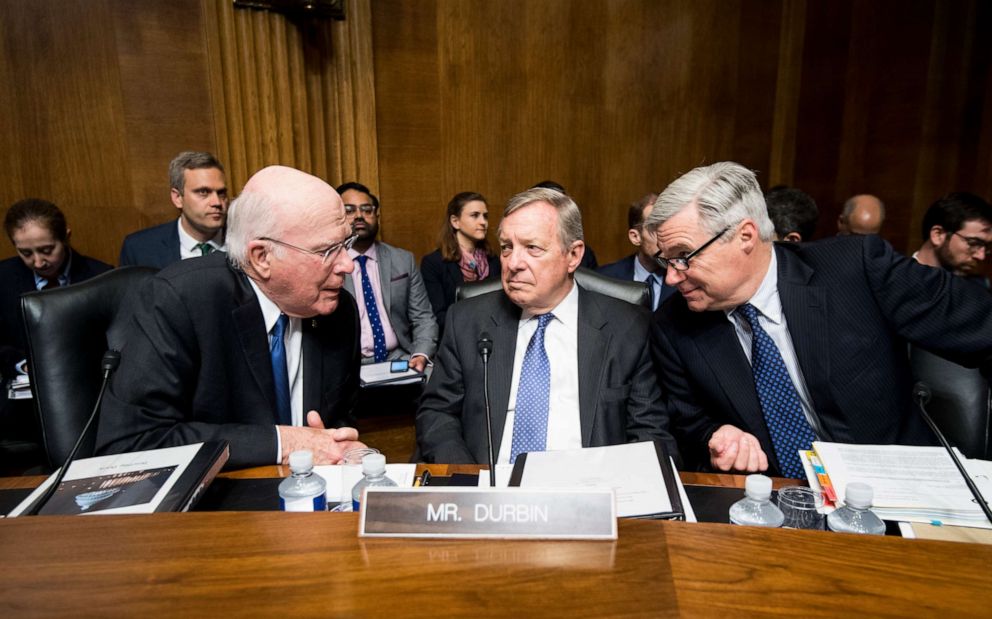
"I don't think Bob Mueller was suggesting the next step was for him to turn this stuff over to Congress to act upon," Barr insisted. "That's not why we conduct grand jury investigations."
Tensions between Barr and Mueller
Barr and Mueller have known each other since the early 1990s, when both served in the Justice Department. But on Wednesday, Barr landed several jabs at his long-time friend, calling into question some of Mueller's procedural decisions.
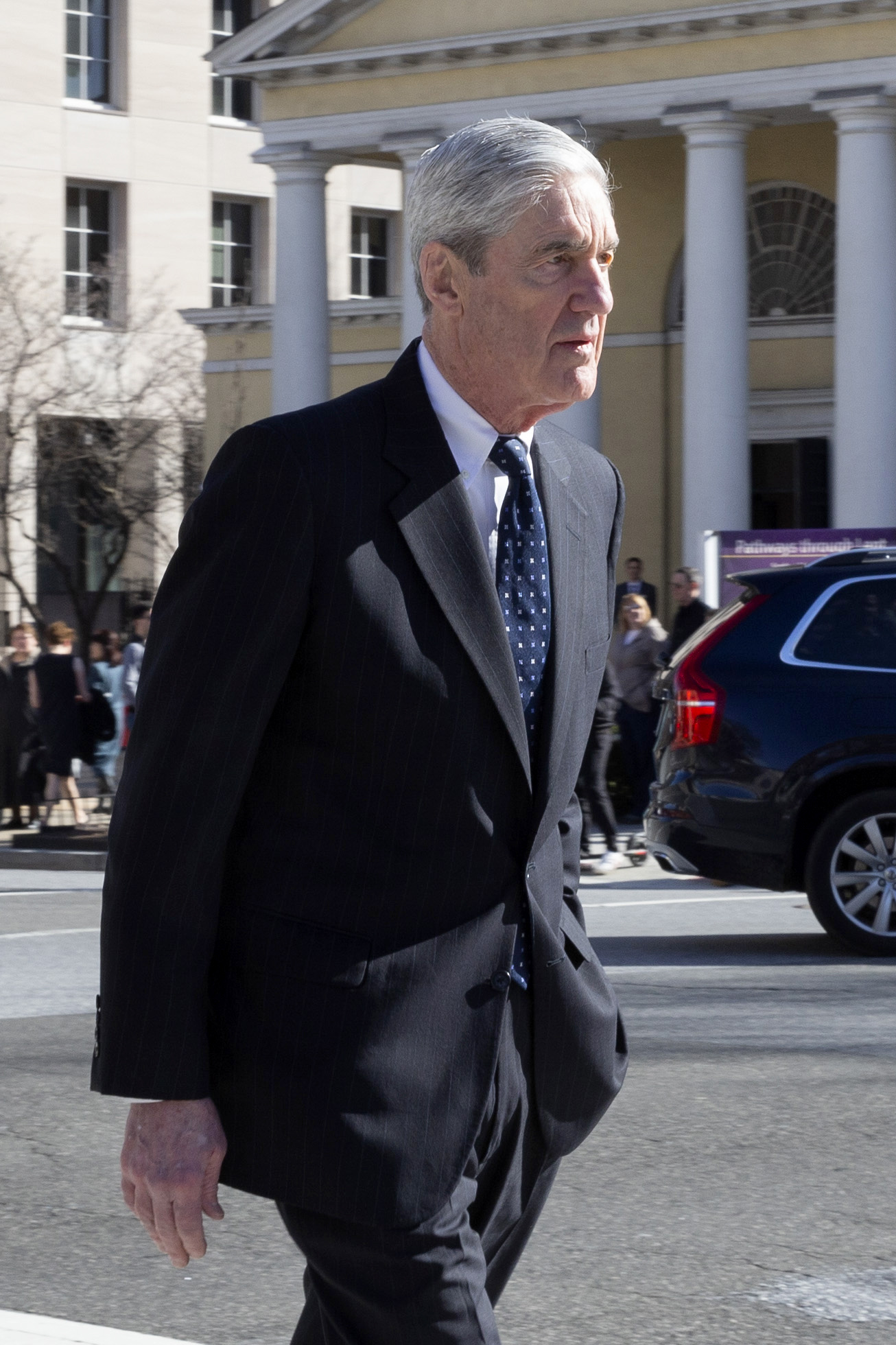
During questioning by Sen. Chuck Grassley, R-Iowa, Barr said he remains unsure of Mueller's rationale for declining to decide one way or the other whether Trump obstructed justice, telling the committee he "didn't want to try and put words in Bob Mueller's mouth."
"I think that if he felt that he shouldn't go down the path of making a traditional prosecutive decision, then he shouldn't have investigated," Barr said. "That was the time to pull up."
For his part, Mueller complained in a March 27 letter that Barr's initial four-page summary of the probe's findings led to "public confusion about critical aspects of the results of our investigation."
At the end of Wednesday's hearing, Barr took a parting shot at Mueller, calling that letter "a bit snitty." The attorney general blunted the blow by following up, "I think it was probably written by one of his staff people."
Barr had no interest in releasing summaries, despite Mueller's requests
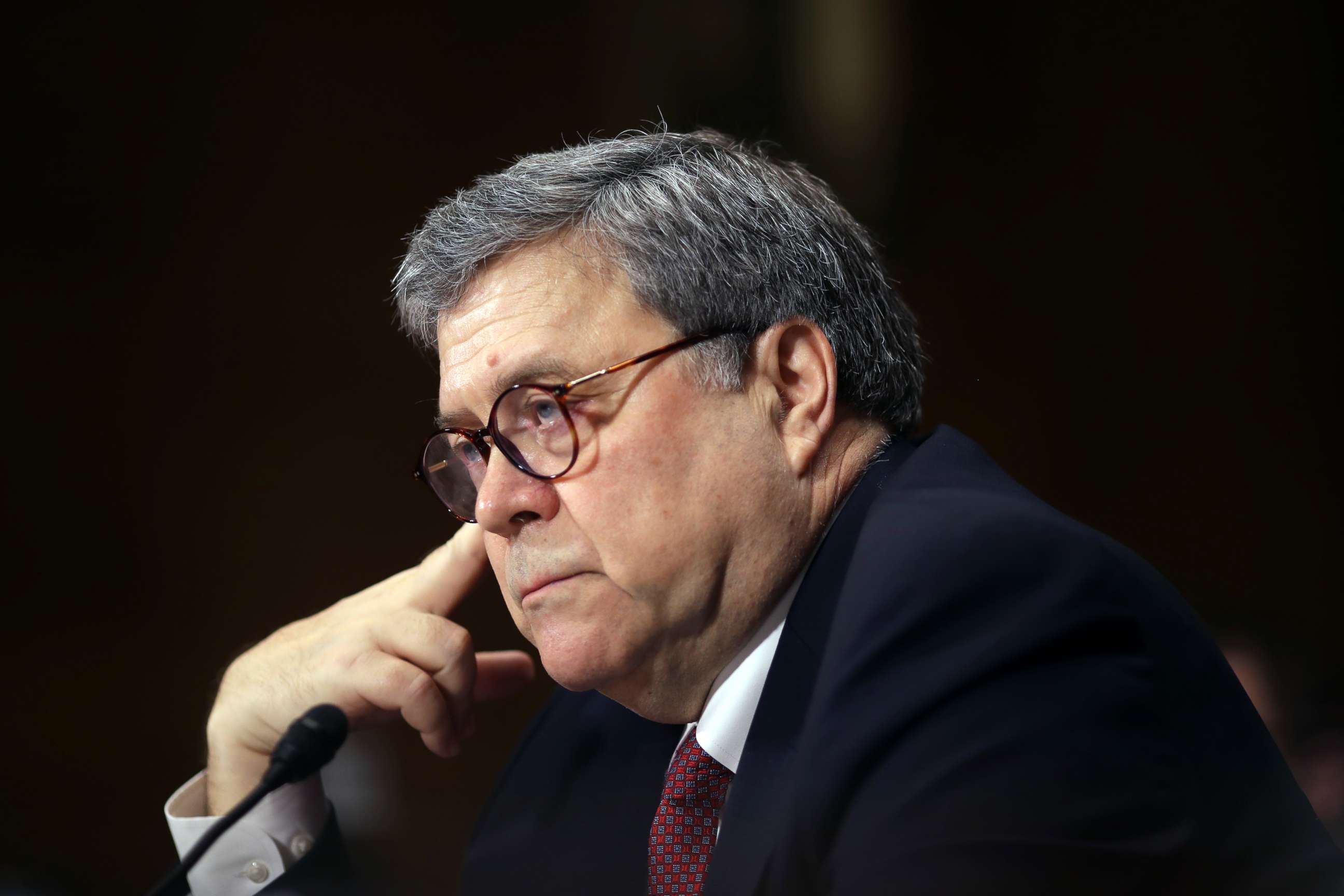
In his March 27 letter addressed to Barr, the special counsel pleaded for the attorney general to release executive summaries prepared by his office to "alleviate the misunderstandings that have arisen."
But Barr was not interested.
"[Mueller] argued for putting out summaries of each volume," Barr said. "And I thought summaries by very definition, regardless of who prepared them, would be under-inclusive and we would have sort of a series of different debates and public discord."
"The body politic was in a high state of agitation," Barr said, and there was speculation about whether the president or members of his family might be indicted.
"People were suggesting if it took any time to turn around the report and get it out it would mean the president was in legal jeopardy," Barr claimed. "So I didn't feel that it was in the public interest to allow this to go on for several weeks without saying anything."
Furor over Mueller complaint is 'mind-bendingly bizarre,' Barr argued
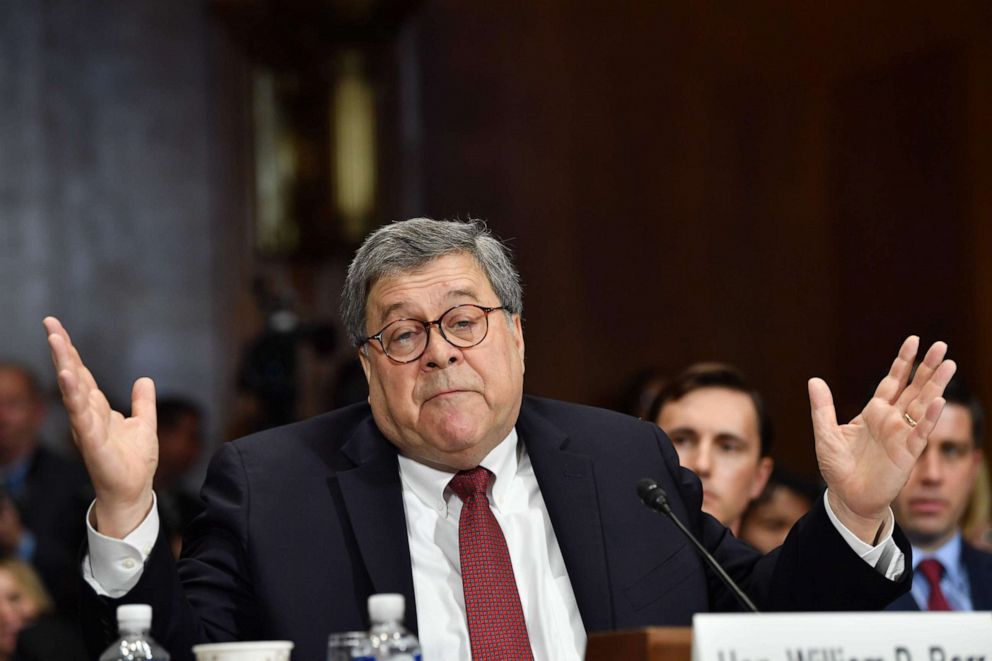
The attorney general said furor over the special counsel's March 27 letter is a moot point -- "mind-bendingly bizarre," as he put it -- because the report was eventually released in its entirety, albeit lightly redacted. Mueller sent the letter after in response to Barr's four-page communique to Congress describing the report's conclusions.
"I think this whole thing is sort of mind-bendingly bizarre," Barr said, referring to uproar over revelations that Mueller expressed frustration over the attorney general's handling of his findings. "I made clear from the beginning that I was putting out the report, as much of the report as I could, and it was clear it was going to take three weeks or so, maybe four, to do that."
Democrats have accused Barr of "[shaping] the public's perception of the report," Rep. Adam Schiff, D-Calif., chairman of the House Oversight Committee, by penning a four-page letter describing the report's "principal conclusions" within 48 hours of receiving the special counsel's findings.
"My concern is that gave President Trump and his folks more than three weeks to say I was completely exonerated," Sen. Chris Coons, D-Del., said Wednesday.
Democrats call Barr's credibility into question as Republicans turn attention back to Hillary Clinton
Democrats and Republicans viewed Wednesday's hearing through a deeply partisan lens.
Democrats on the panel sought to condemn Barr for his handling of Mueller's report, criticizing his "willingness to seem to brush over this," as presidential hopeful Sen. Cory Booker, D-N.J., said. Another Democrat, Sen. Mazie Hirono of Hawaii, called on Barr to resign during her questioning, and another prospective 2020 contender, Sen. Kamala Harris, D-Calif., said the same to reporters outside the committee room.
In one of the testier exchanges of the hearing, Sen. Sheldon Whitehouse, D-R.I., accused Barr of "masterful hair-splitting."
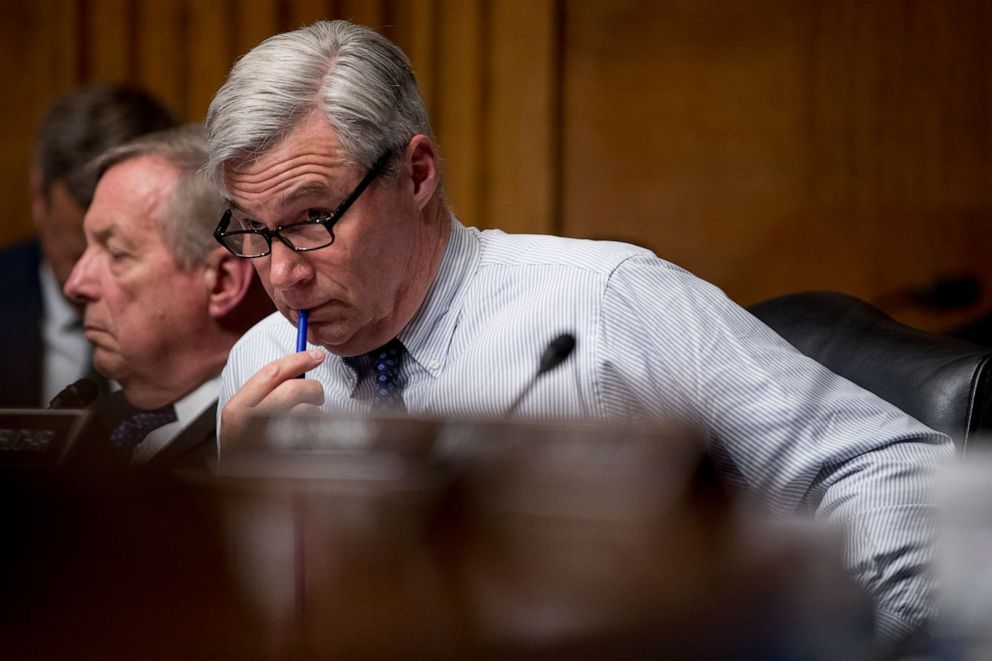
Republicans had a different focus: Hillary Clinton.
Several Republicans invoked the former Democratic nominee, including the committee's chairman, Sen. Lindsey Graham, R-S.C., who spent a considerable portion of his opening statement slamming her campaign and the Justice Department investigation into email server controversy.
Others heaped praise on the attorney general, including a former 2016 presidential hopeful, Texas Republican Sen. Ted Cruz, who commended Barr for "leading the department of justice both with integrity and fidelity to law."
Graham punts to the House, won't call Mueller to testify: "Enough already!"
"For me, it is over," the committee chairman said -- not at the end of Wednesday's hearing, but at the beginning -- capturing a sentiment shared by many of his Republican colleagues.
By the end of the hearing, as he departed the committee room, Graham said he would give the special counsel the opportunity to respond to Barr's testimony in writing, but pressed for an answer as to why he would not invite Mueller to testify in person, Graham exclaimed, "enough already!"
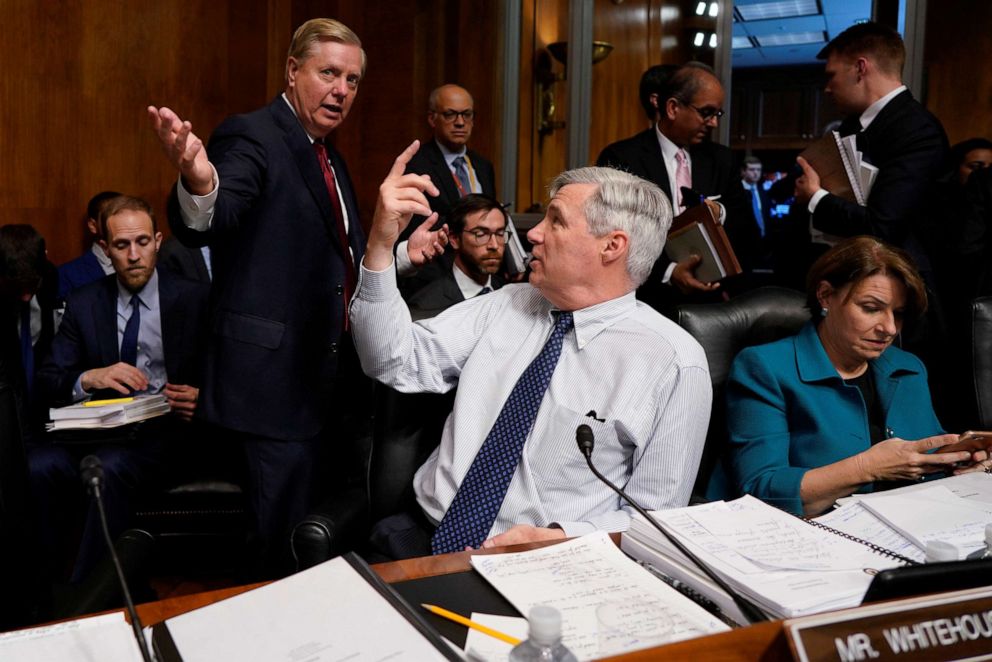
With the Republican-controlled Senate panel ostensibly finished handling fallout from the special counsel's report, attention moves to the Democrat-controlled House Judiciary Committee.
The Justice Department on Wednesday informed the House Judiciary Committee that Barr would decline to testify before the panel on Thursday, amid disagreements over the hearing's format, according to committee aides.
"When push comes to shove, the administration cannot dictate the terms of our hearing and our hearing room," House Judiciary Chairman Jerry Nadler told reporters. He added that his committee is seeking the full unredacted version of special counsel Robert Mueller's report on Russian interference in the 2016 election and that compliance with the committee's request is "not optional."




